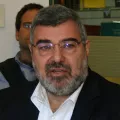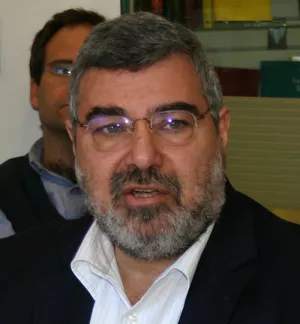"The devastating terror bombs Thursday in a south Beirut high-density residential and commercial area, following the apparent bomb that brought down a Russian civilian airliner last month in Sinai, indicate heightened will and ability by the “Islamic State” (ISIS) to widen its terror war against foes near and far. At least four important dimensions of these latest developments are worth pondering.
The first is ISIS’ strategy of carrying out dramatic attacks outside its territory, even as it fights for its life in the lands it controls in northern Syria and Iraq. It alerts us that ISIS will try to expand and defend its territory, but also will strike further afield when necessary to hurt its adversaries.
Its capacity to control land for long periods of time is being seriously tested now in areas like Ramadi in Iraq, and Sinjar and Aleppo in Syria. Local forces (Kurds, Iraqi militias), Syrian, Turkish and Iraqi state armies, and US and Russian air forces work together in various combinations to push back ISIS in its heartland, while Lebanese forces and Hizbollah fight it along the Lebanon-Syria border. Simultaneously, ISIS forces make forays into other vulnerable areas and take control of smaller villages here and there, to fortify ISIS’ central claim of creating an Islamic State and expanding the Caliphate.
The attacks in Sinai and Beirut offer ISIS followers and potential recruits another face of the organization, which is to retaliate firmly against those whom it considers foes, wherever those foes may reside. The Sinai attack targeted both Russia and Egypt, both of whom fight actively respectively against ISIS forces in Syria and northern Sinai. Hizbollah and ISIS have been fighting for the past two years in Syria and Lebanon. ISIS’ threat last week to carry out attacks in Russia, if implemented, would represent a dramatic new turn in its ability to act globally. If this happens, ISIS would be following in the footsteps of Al-Qaeda, which for the past 25 years has carried out terror attacks globally.
The second dangerous aspect of the two recent attacks is the confirmation that ISIS can use individuals or perhaps small cells of followers in other countries to carry out its destructive plans. This captures the real difficulty in defeating groups like ISIS and Al-Qaeda, which is not in destroying their headquarters or killing their leaders, but eradicating the underlying structural reasons for discontent and alienation among millions of individual citizens, across much of the Arab-Islamic world. That discontent and alienation ultimately generate desperate young men who join groups like ISIS and Al-Qaeda, or carry out lone wolf attacks to emulate them. It does not take much technical or logistical expertise to carry out suicide attacks or bombings like these recent ones, given the willingness of disoriented and hopeless young men to do such criminal deeds. The entry of Russia into the Syria war, the Saudi Arabian war on Yemen, Hizbollah’s battling ISIS and Jabhat el-Nusra in Syria, and Egypt’s hard crackdown on the mainstream Muslim Brotherhood and ISIS-affiliated groups in northern Sinai will only increase the flow of recruits and suicide bombers who respond to ISIS’ tale of Sunnis being under global attack by “infidels” and “apostates.”
The third dangerous aspect of the ISIS attacks is their explicit targeting of Shiites, other “deviant” Muslims, and polytheists whom they see as apostates who deviate from the true faith that ISIS claims to assert in its Islamic State. The brief ISIS statement issued after the Beirut bombings mentioned Hizbollah as embodying the attributes in people whom hardline Sunnis see as apostates who should be killed, unless they repent and join ISIS’ true path. We should expect more vicious Sunni-Shiite warfare, as well as ISIS attacks against others in the region who do not share its narrow and militant interpretation of Islam.
The fourth important aspect of the bombings in Beirut in particular, but also in conflicts elsewhere in the region, is that most of the fighting is being done by non-state militias and political groups. These include ISIS, Jabhat el-Nusra and dozens of other Islamist and nationalist rebel groups in Syria, Hizbollah, four major Kurdish fighting forces in Turkey, Syria, and Iraq, and tribal and Iranian-supported militia in Iraq, to mention only the most prominent ones. Combined with the fact that Russian and American jet fighters dominate the Iraqi and Syrian air spaces, this means the Middle East has become a region in which active warfare, terror attacks, ethnic cleansing, and often barbaric sectarian violence are routinely the work of armed groups that may be beyond the control of any government. This does not detract from the fact that some Arab governments also actively engage in ethnic cleansing and sectarian violence.
All this augurs badly in the short term for the Middle East and perhaps for countries further afield that actively wage war in the Middle East. The deeper problem behind these troubling trends is the continued unraveling of state-centered, government-controlled societies in the Arab world (and this is mainly an Arab problem), in favor of tribal, ethnic, sectarian and ideological groups that often resort to arms to protect themselves and their turf. ISIS and the violence it has sparked must be seen as the cruel outcome of the last six decades of autocratic and authoritarian Arab states dominated by soldiers and social chieftains, to the almost total exclusion of citizen rights. This structural failing of the modern Arab world cannot be fixed by foreign armies and Arab counter-terrorism efforts, but rather only by transformations towards participatory, pluralistic and accountable governance systems. The sooner we all work towards that noble goal — in fact, our right as citizens — the sooner we can get out of the current cycle of death and chaos that plagues us all. Until then, ISIS and perhaps even worse phenomena will continue to plague our region and others who are sucked into it."
Khouri, Rami. “Four lessons from the ISIS attacks in Beirut and Sinai.” Agence Global, November 14, 2015



